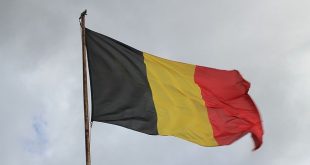Belgium is a multilingual and multicultural country, located in Northwestern Europe. Boasting high scores on standard of living, quality of education as well as human development conditions, the country has gained in popularity among international students. Being also one of the most affordable study abroad destinations, Belgium is home to more than 40,000 foreign students. And if you are among those who plan to pursue academics in this amazing country, here are the general requirements to get admission at a university in Belgium.
Learn also the reasons why you should study in Belgium as an international student.
Admission process at a university in Belgium for international students
Usually, the admission process at a university in Belgium includes the following:
- Choose an institution of higher education
- Select one or more programs to study
- Gather all necessary documents to meet all requirements
- Apply for admission
- Pass entry tests if any
Choose a university
The very first step to get admission at a Belgian university is most certainly the choice of the institution you’re going to enroll in. It is common practice among international applicants to select one or more universities to apply to.
Moreover, Belgium has public as well as private universities, the public ones being more affordable and easier to get in. When choosing a university in Belgium, here are some key points you might want to check out:
- Institution ranking
- Tuition fee
- Study programs in your preferred language
- Location of the university campus
- Availability of on campus accommodation
Read here our list of the best universities in Belgium.
Which course is best in Belgium?
Beside the option to study in French, Dutch, English and German, universities in Belgium also offer programs in variety. The country has made high investment in education, and has progressed in terms of research in the fields of science, arts, IT, applied science and more. There is therefore no shortage of choice when it comes to study programs in Belgian universities. You’re sure to find out a course that meets your future career goals.
If you plan to study medicine in Belgium, read our ultimate guide on the matter.
For those who want to pursue academic education, universities are the institutions to check out. On the other hand, if you are looking instead for a profession-oriented education, check the programs offered at colleges or universities of applied science.
University programs in Belgium involve a high level of research and theoretical knowledge. And postgraduate studies at these institutions are mostly research-focused. Moreover, if you look into a mix of theory and professional experience, university colleges offer programs with mandatory internships and projects.
University admission requirements in Belgium for international students
The requirements to study in Belgium vary depending on the university, whether it’s a public or private university. They also can differ according to the student’s chosen language. However, general requirements don’t differ that much. To apply to undergraduate studies, you need to provide a valid high school diploma certifying you’ve successfully completed upper secondary studies. To apply for a master’s program, you need a bachelor’s degree or an equivalent. And for doctorate studies, you need a master’s degree or a corresponding degree.
Other documents required for admission in Belgium universities
Getting into a university in Belgium is not usually very competitive, unless you apply to study medicine, dentistry or veterinary sciences. In this case, you’ll have to sit additional entrance exams.
Common university entry requirements in Belgium include documents such as:
- Academic transcripts or grades and certificates (original ones)
- Filled application form
- Resume
- Proof of financial support or scholarship
- Proof of proficiency in the English, French or Dutch languages
- Letters of recommendation
- Copy of ID (passport or national ID card)
- Letter of motivation or statement of purpose or else
- Paid receipt of the registration fee
Your academic certificates and other official documents must be translated into the language required by the university. It must be done by a sworn translator in French, English, Dutch or German. In some cases, universities in Belgium will require degrees from foreign countries to be officially recognized. Make sure to check your university’s website regarding these specific requirements.
Method of application
Once you have gathered all the necessary documents, the next step is to submit them. Usually, in Belgium, application is done online, directly through the application system of the university. However, in some cases, they may ask you to send the original documents by post mail in order to prove their authenticity.
After you’ve paid the registration fee and submitted your application, the university will evaluate your application to let you know if you need or not to sit an admission or an aptitude test.
Belgium university fees for international students
Usually, universities in Belgium apply relatively lower tuition fees compared to other European countries. Students who are from the European Union will pay a maximum tuition fee of €835 per year. Non-European international students will pay specific registration fees that don’t go beyond €4,175 per year.
However, non-European candidates may be exempted from paying full fees and will only pay the national rate of €835. This is under the conditions that the student is a national of a “least developed country” or of a country at the end of the list given on the UN’s Human Development Index.
Students who are not from these countries, on the other hand, can benefit from the discount if they are re-enrolling and have acquired at least 75% of the ECTS credits at the end of the previous academic program. Moreover, if they apply to a PhD program, the registration fee will be €32 the following years, instead of €835.
Learn also about the study and living cost in Belgium for a student.
Belgium university application deadlines
When talking about university application deadlines in Belgium, it’s important to make some distinctions. First, public and private universities don’t apply the same deadlines. Private university are also very flexible as long as the quota of registered students is not yet reached.
The admission deadline for students from countries that do not need a student visa to Belgium usually falls on June 1st. Moreover, application at public universities in Belgium starts on February 1st and ends on April 30th every year. Private universities, on the other hand set the beginning of the application on March of every year until October of the academic year.
Now that you know the process and everything to know about university admission in Belgium, the next step is the student visa application.
Find here how to apply for and get a student visa to Belgium.
This post is also available in ar.




 Aljawaz Your guide to study abroad
Aljawaz Your guide to study abroad










